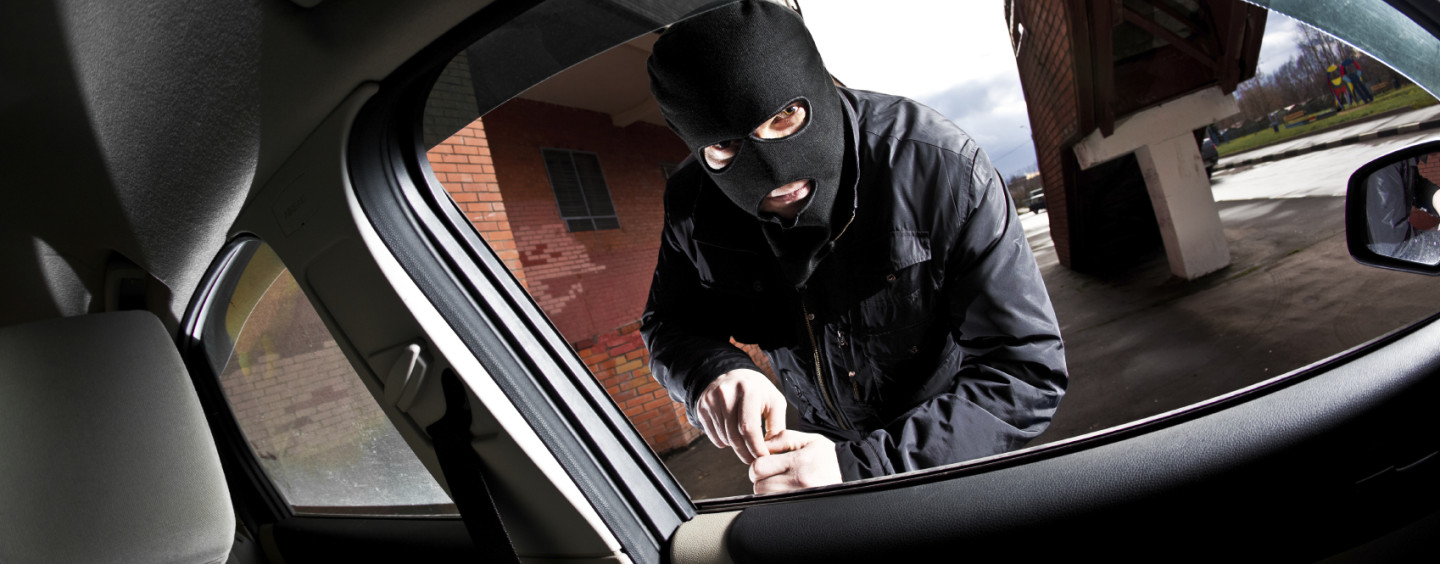Did you know the coded “unlock” signal from your electronic key could be a fob? If it’s a newer model, you might not have to press any buttons. Just approach your car and the doors will unlock. In some cars, the engine will even turn on.
If you have an automatic key fob, you know it’s really convenient. If you’ve ever been carrying a baby, or grocery bags, it’s really nice to be able to open the door without putting everything down to pull out your keys.
RELATED: Fraud Experts Say: Don’t Fall for Illegal Soliciting
However, that convenience comes at a price. Specifically, the key fob’s signal is easy for criminals to intercept. That lets them open your car without setting off any alarms. If you have a true keyless car model, they might be able to just drive away.
Let’s look at how criminals pull this off and what you can do to keep your car safe.
HOW YOUR CAR’S SECURITY SYSTEM WORKS
As you’ve probably noticed, you can’t just open your car with any old radio signal. You need your specific key fob to do the job, and there’s a reason.
A traditional button-press key fob uses a computer chip to create a unique code that it sends to your car’s security system. The car also has a chip using the same algorithm to generate codes. If the codes match up, then the car opens. There’s a bit more to it than that, but that’s basically how it works.
HOW CRIMINALS ATTACK #1
Since each key fob/car security pair is unique, and each one can create billions of codes, hackers don’t stand a chance. Or at least that was the theory. It turns out a popular system from Megamos Crypto isn’t as secure everyone thought.
Researchers at Radboud University in the Netherlands and the University of Birmingham found that by intercepting the wireless signal just twice, they could narrow down the possible combinations from billions to just 200,000. After that, a computer can figure out the code in just half an hour and unlock the car.
In a real-world application, a thief could sit on a street gathering wireless signals as car owners enter and exit their vehicles. Then overnight they could steal a number of cars. Click here to find out if your car is at risk from this kind of attack.
Still, that takes a skilled car thief or hacker to carry out this kind of attack, so the odds of it happening to you are slim. However, thanks to always-on key fobs, there’s another risk.
HOW CRIMINALS ATTACK #2
Always-on key fobs present a serious weakness in your car’s security. As long as your keys are in range, anyone can open the car and the system will think it’s you. That’s why newer models won’t activate until they’re within a foot.
However, for less than $100, criminals can get an amplifier. It picks up key fob signals up to 300 feet away, and then transmits them to your car. See the video below where criminals are breaking into keyless cars.
In other words, your keys could be in your house, and criminals could walk up to your car and open it. This isn’t just a theory either; it’s actually happening.
Fortunately, there are some simple steps you can take to keep hackers from stealing your signal. We’re going to look at three of them.
RELATED: Court Refuses to Toss Trump University Fraud Case
HOW TO STOP CAR THIEVES
There are several easy ways to block criminals’ amplified signals. You can buy a signal-blocking pouch that can hold your keys, like the Hack-Blocking Card Pouch we sell in the Komando Shop.
If you don’t want to spend the money, you can stick your key fob into the refrigerator or freezer. The multiple layers of metal will block your key fob’s signal. Just check with the fob’s manufacturer to make sure freezing your key fob won’t damage it.
If you’re not keen to freeze your key fob, you can do the same thing with your microwave oven. (Hint: Don’t turn it on.) Stick your key fob in there, and criminals won’t be able to pick up its signal. Like any seasoned criminal, they’ll just move onto an easier target.
Since your key fob’s signal is blocked by metal, you can also wrap it up in aluminum foil. While that’s the easiest solution, it can also leak the signal if you don’t do it right. Plus, you might want to stock up on foil. You could also make a foil-lined box to put your keys in, if you’re in a crafting mood.
Are you a victim of fraud or money scam? Share your story with us on the Money Credit and You Facebook page!
Original article published on KimKomando.com. Photo Credit:All American PI





